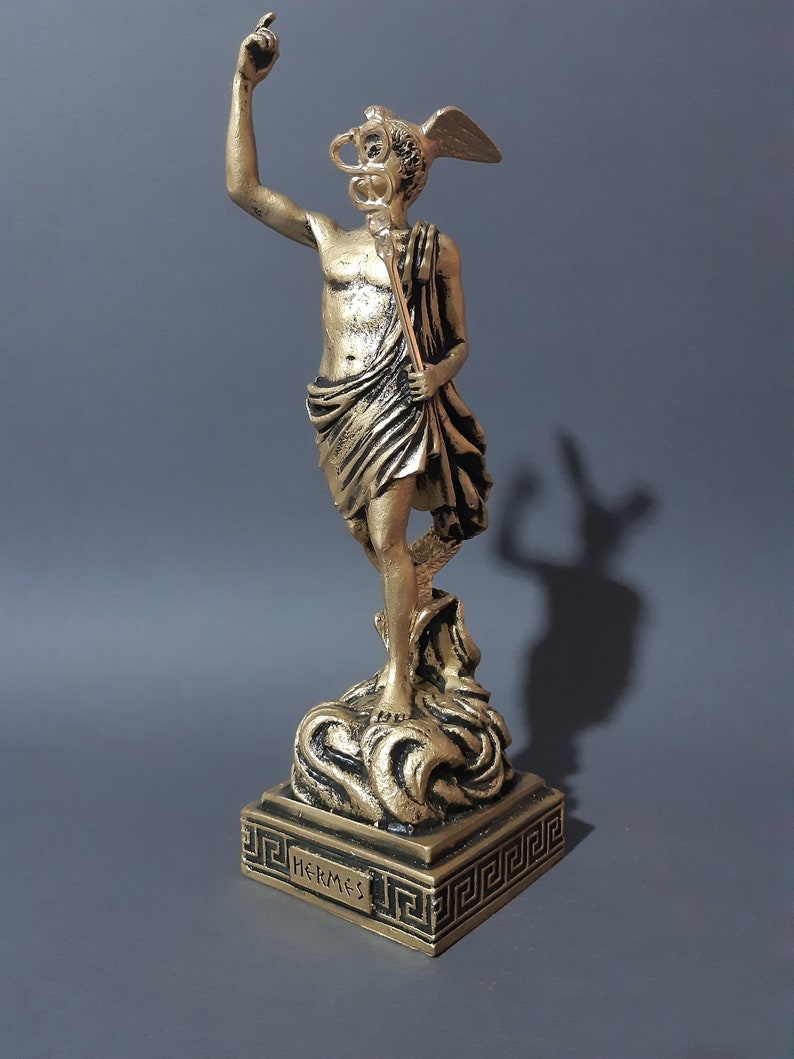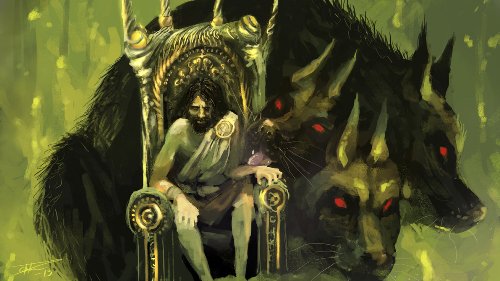

The place where the snakes cross symbolizes the chakras or the spinal energy vortexes of the subtle body. #17 His symbols include the Caduceus, a staff that appears in a form of 2 snakes wrapped around a winged staff with carvings of the other gods. #16 He was the one who gave Pandora a human voice and made her speak with fraudulent, false, and bad words. #15 Following Zeus’ decision, the 3 goddesses, Hera, Athena, and Aphrodite, were led by him to Mount Ida (in close proximity of Troy) in order to be judged by Paris (the son of Queen Hecuba of Troy and King Priam), who decided which one would have the Apple of Eris, better known as the apple of discord. #14 He took part in the battle of the Giants, also called Gigantes, and was able to kill Hippolytus (a son of Theseus) with the help of his magic helmet that he received from the god of the underworld -Hades, making whoever wore it invisible. #13 He also accompanied Zeus on numerous journeys and, for instance, at some point he helped Zeus during a fight with Typhon, the most deadly creature in Greek mythology. #12 He gave Odysseus (king of the island of Ithaca) a holy herb known as “moly” that only he could dig deep to find, due to his godly powers. In addition, He rescued Ares (the Greek god of war) from a brazen vessel where he was imprisoned by Ephialtes and Otus. #11 He helped Perseus (a Greek hero part god and part man) in his quest to slay the Gorgon Medusa (a winged human female with living snakes in place of hair). He also sacrificed some of the stolen goods to many different goddesses. To avoid from being exposed by tracks, he put boots on the cattle`s feet and led them to Pylos. For example, his first ”crime” was to steal cattle belonging to the god Apollo (the son of Leto and Zeus). #10 As a newborn, he was remarkably precocious. #9 He had slain Argus Panoptes – the 100-eyed giant who watched over the nymph Io (one of the mortal lovers of Zeus), who had been turned into a cow by Zeus to hide her from Hera, the jealous wife of Zeus. He also invented the alphabet and it is said that liars and thieves usually prayed to him, to receive his sympathy. Additionally, he is said to have invented the lyre from a turtle shell on the first day he was born. #8 Moreover, he is deemed with inventing sacrifice and divine worship. Furthermore, because of his amazing diplomatic traits, he was acknowledged as the patron of rhetoric and languages. #7 He was known as a poetry patron and the god of all the gymnastic games. #6 In Zeus’ opinion, the best thing about him was his capacity to keep a secret. #5 He is faster than any other Greek god and a good talker, hence, whenever the gods wanted to send messages to humans, they gave the job to him. He is sometimes portrayed as a bearded man with a golden helmet. #4 He is usually depicted as a beardless, athletic, young god who has a winged hat, winged boots and carries a magic wand (or a herald’s staff). In an effort to offer protection to humanity, he tricked many gods and goddesses for his own personal amusement and fun. #3 He was believed to be a “trickster” because of his clever and cunning personality.

In Roman mythology, he was called Mercury, and is linked with the Egyptian god of wisdom, Thoth or Tahuti. In addition, he was good-humored, cheerful, and cunning. He was the messenger of the gods, the god of merchants, eloquence, travelers, commerce, and public speakers. #2 In Greek mythology, he is said to appear more frequently than any other gods. He was also called Atlantiades due to his mother who was one of the seven daughters of Atlas, a leader of the Titans.

#1 He was the son of Zeus (the king of the gods) and Maia (a nymph), who gave birth to him in a cave on Mount Cyllene (also known as Mount Kyllini) in Arcadia and then fell asleep exhausted. Find out these interesting facts about Hermes – The Messenger of Gods in Greek Mythology: Born in Arcadia


 0 kommentar(er)
0 kommentar(er)
